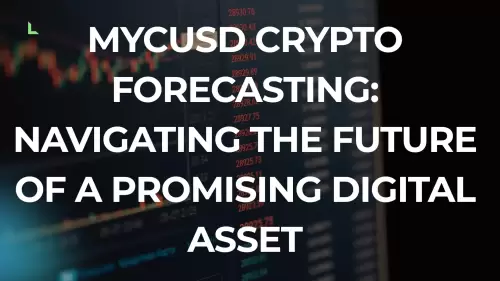 |
|
 |
|
 |
|
 |
|
 |
|
 |
|
 |
|
 |
|
 |
|
 |
|
 |
|
 |
|
 |
|
 |
|
 |
|
Cryptocurrency News Articles
Iris-scanning project World promises to distinguish humans from AI bots
May 05, 2025 at 04:43 pm

Sam Altman’s crypto project World has begun operating in the US, aiming to distinguish humans from AI bots with biometric iris scans.
The project, which was initially met with scepticism and privacy concerns in multiple countries, is now rolling out its unique, anonymized IDs and the Worldcoin token in the US.
World’s US entry comes on the heels of Trump’s pledge to make America “the crypto capital of the planet.” That policy pivot has opened the door for Altman and his venture to reposition the US at the centre of its operations after previously lamenting a regulatory climate that made domestic expansion untenable.
“There were very good reasons why we focused on making sure that the product worked in the entire world before coming to the United States,” said Adrian Ludwig, chief architect at Tools for Humanity, the company behind World. Among those reasons were significant regulatory risks.
Spain's data protection agency blocked World’s operations last year over concerns about the collection of minors’ data. Similar scrutiny followed in France, South Korea, Hong Kong, Portugal, and others. However, the group claims all biometric data remains anonymous.
World’s technology was initially used to create unique digital IDs and grant access to World’s crypto ecosystem and its Worldcoin token. But Ludwig said the company is also in talks with several large social networks to integrate its identity system.
World is now partnering with dating app giant Match Group to verify users on platforms such as Tinder, a move the company says could enhance safety and reduce online scams. Ludwig also said the technology could be integrated into social networks, including potentially OpenAI’s rumoured platform—or even rival services like Elon Musk’s X or Meta.
The company is exploring smaller, handheld versions of its orbs and plans to eventually integrate its identity system into everyday devices like webcams or smartphones.
Despite facing criticism over privacy, Ludwig emphasized that the platform’s long-term viability would be shaped by its utility and revenue model. “In 18 months or so we will begin to see the costs of operating the network begin to be offset by the fees that are generated by the network.”
World is currently unprofitable, but Altman and his team are betting that as AI deepens online deception, the need for verified digital identity will only grow.
Disclaimer:info@kdj.com
The information provided is not trading advice. kdj.com does not assume any responsibility for any investments made based on the information provided in this article. Cryptocurrencies are highly volatile and it is highly recommended that you invest with caution after thorough research!
If you believe that the content used on this website infringes your copyright, please contact us immediately (info@kdj.com) and we will delete it promptly.





























































